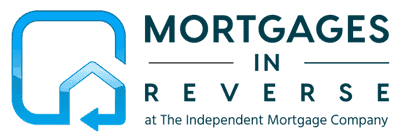Just as Hercules had to decipher the riddles of the Oracle at Delphi, you too might find yourself trying to unravel the enigma that is a reverse mortgage.
As a homeowner in Vancouver, it's a financial tool you've likely heard about, but do you really understand it?
If you're over 55 and own your home, a reverse mortgage could potentially offer you a financial lifeline, but like all financial products, it's not without its risks.
So, are you ready to untangle the mystery of reverse mortgages?
Key Takeaways
- Reverse mortgages in Vancouver allow homeowners aged 55 and up to convert home equity into tax-free cash.
- Eligibility for reverse mortgages includes age, significant home equity, credit score, and the home being the primary residence.
- Potential benefits of reverse mortgages comprise financial freedom, staying in your home, and improving the quality of life during retirement.
- Risks include hidden costs, reduced equity, financial vulnerability, potential foreclosure risk, and the need for consultation with a financial advisor.
Understanding Reverse Mortgages
Before delving into the specifics of reverse mortgages in Vancouver, it's crucial to grasp what a reverse mortgage is and how it can impact your financial future. A reverse mortgage allows homeowners aged 55 or older to convert a portion of their home equity into tax-free cash without having to sell their home or make regular mortgage payments.
However, there are common 'Reverse Mortgage Misconceptions' that could mislead you. You might believe that the bank will own your home, but in reality, you maintain ownership. Another misconception is that you could owe more than your home's worth. While it's true that interest accumulates over the life of the loan, federal laws limit the amount you owe to the value of your home.
When looking at 'Mortgage Alternatives Comparison', consider home equity lines of credit (HELOCs) and refinancing. HELOCs allow you to borrow against your home equity, but require monthly payments. Refinancing can provide a lower interest rate, but it also means a new loan term.
Eligibility Criteria for Reverse Mortgages
To qualify for a reverse mortgage in Vancouver, you must tick off certain boxes, including age, home equity, and primary residency requirements. Typically, you need to be at least 55 years old and the home should be your primary residence. The amount of home equity you have also plays a crucial role as it determines the size of the loan you can access.
| Criteria | Description |
|---|---|
| Age | You must be at least 55 years old |
| Home Equity | You should have significant home equity |
| Primary Residence | The home must be your primary residence |
| Credit Score | Credit score implications come into play |
| Retirement Planning | Consideration of retirement planning alternatives |
Credit score implications shouldn't be overlooked. Even though a reverse mortgage doesn't require monthly payments, lenders still assess your creditworthiness to ensure you can afford ongoing costs like property taxes, homeowner's insurance, and home maintenance.
Also, it's important to weigh this option against other retirement planning alternatives. A reverse mortgage might be a viable solution if you want to stay in your home and have no other significant assets. However, it might not be the best choice if you're counting on leaving your home to your heirs.
Process of Obtaining a Reverse Mortgage
Navigating through the process of obtaining a reverse mortgage in Vancouver involves several crucial steps, from determining your eligibility to closing the deal. This journey isn't simply about securing a loan, but understanding the implications, such as loan repayment and mortgage interest, and making informed decisions.
- Application Process: After determining your eligibility, you'll need to fill out an application. This includes providing information about your property and financial situation.
- Independent Legal Advice: It's essential to seek independent legal advice to understand the contract terms, loan repayment obligations, and how mortgage interest is accrued. This step ensures you're fully aware of the potential implications.
- Loan Approval and Closing: Upon approval, you'll finalize the deal by signing the loan agreement. This stage also includes setting up the method for receiving your loan, whether it's a lump sum, regular payments, or a combination of both.
Understanding the process of obtaining a reverse mortgage can be complex, but armed with the right information, you can confidently navigate this journey. Remember, it's not just about the immediate financial relief, but also about managing the long-term impacts including loan repayment and mortgage interest.
Potential Benefits of Reverse Mortgages
While considering the potential long-term impacts like loan repayment and mortgage interest, it's also essential to acknowledge the potential benefits that a reverse mortgage can bring to your financial landscape.
The first and perhaps most significant benefit is Equity Access. This means you can tap into the value of your home without selling it. The money you receive is tax-free and can be used any way you wish, whether it's for home improvements, medical expenses, or even a long-awaited vacation.
Another substantial benefit of a reverse mortgage is Financial Freedom. For many seniors, a significant portion of their wealth is tied up in their homes. A reverse mortgage allows you to convert that equity into cash, providing a source of income that can significantly improve your quality of life during retirement. This newfound financial freedom can make your golden years more comfortable and stress-free.
Lastly, a reverse mortgage allows you to stay in your home while drawing on its value, providing a sense of security and continuity. By carefully considering these potential advantages, you can make an informed decision about whether a reverse mortgage is a beneficial move for your finances.
Risks and Downsides of Reverse Mortgages
Despite the potential benefits, it's crucial to understand that reverse mortgages also come with certain risks and downsides that could impact your financial stability.
- Hidden Costs: Reverse mortgages often include several hidden costs. This includes origination fees, interests, and insurance premiums. These costs can significantly reduce the amount of money you have access to and increase the loan's overall cost.
- Reduced Equity: As you receive money from a reverse mortgage, your home's equity is reduced. This means you'll have less wealth to pass on to your heirs.
- Financial Vulnerability: If you outlive the loan term or fail to meet the loan requirements, such as paying property taxes or home insurance, you could be at risk of foreclosure. This could lead to you losing your home, increasing your financial vulnerability.
It's critical to carefully consider these risks before deciding on a reverse mortgage. While it may seem like an attractive option, the hidden costs and potential financial vulnerability can significantly impact your financial stability and future. Always consult with a financial advisor to understand the full implications of a reverse mortgage.
Frequently Asked Questions
How Does a Reverse Mortgage Impact My Estate and Heirs in Vancouver?
A reverse mortgage can significantly impact your estate and heirs in Vancouver. It's vital to consider estate planning when deciding on this option.
Essentially, your heirs' financial obligations will increase as they'll need to repay the loan when you pass. If they can't afford it, they might have to sell the house.
Are There Any Specific Tax Implications for Reverse Mortgages in Vancouver?
While you're unlocking equity with a reverse mortgage, you must know there aren't direct 'Tax Deductions Possibilities'. However, the loan isn't taxable income.
It becomes trickier with 'Capital Gains Implications'. If you sell your home to repay the loan, you might face capital gain taxes. That's why it's crucial to understand these nuances and plan accordingly.
Your financial advisor can provide tailored advice to navigate these implications.
Can I Still Qualify for a Reverse Mortgage if I Have an Existing Mortgage on My Vancouver Home?
Yes, you can still qualify for a reverse mortgage even with an existing mortgage on your Vancouver home. The eligibility criteria require you to use some of the funds from the reverse mortgage to pay off the existing one.
Mortgage considerations like your home's equity and your financial stability also factor into the approval process.
It's important to understand the implications before proceeding.
What Are the Alternative Options to Reverse Mortgages for Homeowners in Vancouver?
Ever considered alternatives to reverse mortgages in Vancouver? You've got options! Equity release options such as home reversion or a lifetime mortgage can be viable choices.
You can also explore senior housing alternatives if you're over 55. Downsizing or moving into a retirement community might suit your lifestyle better.
It's all about finding what works best for you in your golden years. Research thoroughly and make an informed decision.
How Is the Interest Calculated for a Reverse Mortgage in Vancouver?
Calculating the interest on a reverse mortgage in Vancouver involves several factors. You must compare interest rates from different lenders to get the best deal.
It's typically compounded semi-annually, so you'll see it grow over time. Unlike traditional mortgages, you're not making regular repayments, so the interest is added to your loan balance.

